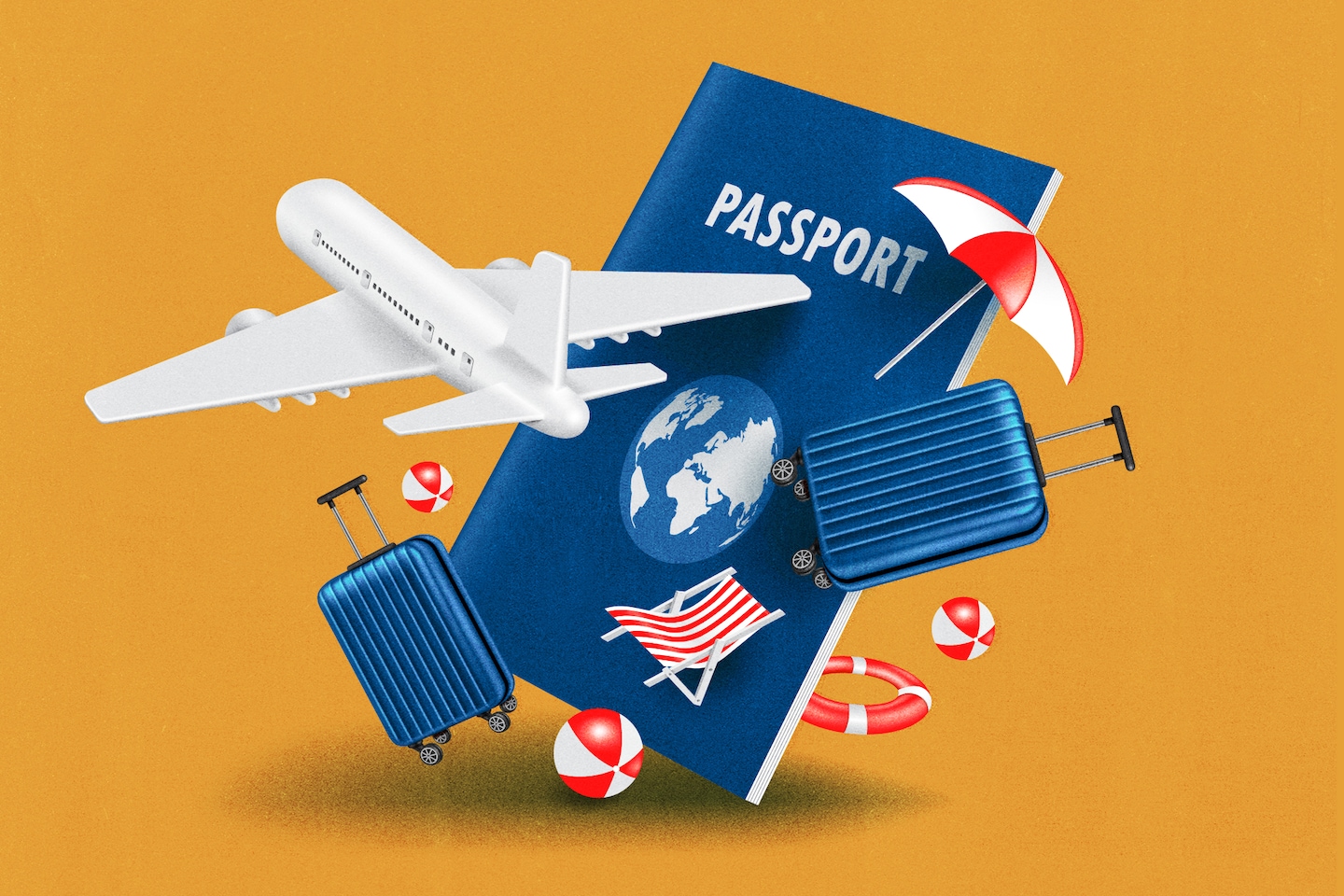“We haven’t seen Memorial Day weekend travel numbers like these in almost 20 years,” Paula Twidale, senior vice president of AAA Travel, said in a news release forecasting nearly 44 million travelers between Thursday and Monday. “We’re projecting an additional one million travelers this holiday weekend compared to 2019, which not only means we’re exceeding pre-pandemic levels but also signals a very busy summer travel season ahead.”
Travel advisers say the numbers are bearing out the enthusiasm they’ve seen from clients. John Lovell, president of Travel Leaders Group, said families have been planning for this summer since last year — and already are booking trips for spring break and the summer of 2025. He said people realized early in the pandemic how much travel brought to their lives and have since made it a priority.
“What we’re hearing every single day is that people are just so joyful to get out into the world again,” said Mel Burton, coordinator at CruCon Cruise Outlet.
For the millions of people traveling over the upcoming weekend or months, there are some key tips to remember.
Airfare is giving us a break
It should cost less to fly over the holiday weekend (or throughout the summer) this year compared with last — and even compared with pre-covid times.
According to flight-booking app Hopper, the cost of domestic flights for Memorial Day weekend was averaging $260 as of last week, a decrease of 9.5 percent year over year.
“It’s a trend that’s going to continue through the summer,” said Hayley Berg, Hopper’s lead economist.
For June, July and August, domestic airfare is averaging $305 a ticket, a 6 percent drop, Hopper said in its summer outlook. Even flights to Europe are trending cheaper after last summer’s sticker shock. Berg said the average airfare for Europe flights of $950 for June through August was down 8 percent.
Still, that’s about 15 percent higher than the cost of flights in 2019.
Part of the reason behind the higher travel numbers and lower airfare is simple: There are more seats to fill.
According to Hopper, there are about a million more seats flying domestic routes over the Memorial Day weekend from Thursday until the following Tuesday — more than a 6 percent increase in capacity.
“We fully expect airlines are ready for it,” Berg said. “They’ve added back only capacity that they can maintain because of the disaster of cancellations and delays in 2022 coming out of the pandemic. We’re not expecting any major meltdowns barring any unexpected weather.”
Cirium, an aviation analytics company, said that there are over 15 million more seats flying domestically between June and August this year compared with last, an increase of 5.6 percent.
That all amounts to a little bit of potential relief for travelers, said Scott Keyes, founder of the cheap-flight alert service Going.
“Airlines just have more capacity and more flights on the schedule, which results in cheaper fares and more elbow room,” he said.
New refund rules won’t help you yet
Maybe this summer will be free of airline meltdowns, but it’s better to prepare for the worst. Passengers should be aware that they are entitled to their money back if their flight is canceled or significantly delayed and they end up not traveling.
By the winter holidays, new rules will be in place requiring airlines to automatically refund passengers in those cases. But that rule — which also covers refunds for significantly delayed bags and extra services that aren’t provided — won’t be in place for summer travelers.
To get a refund before the rules kick in, travelers will need to request it from their airline and be prepared to push for money back instead of vouchers or flight credits.
To find out what else they might be entitled to in case of delays or cancellations that are caused by airlines, travelers can turn to a Department of Transportation customer service dashboard. That will reveal which airlines will, for example, book passengers on an alternate carrier, provide meal vouchers, offer ground transportation or pay for a hotel if a traveler is stranded.
Alaska Airlines started a pricing trend in January when it raised its fee for a checked bag from $30 to $35. American Airlines did the same the next month, followed by price hikes from United, Delta and JetBlue. It was the first time some airlines had raised checked-bag prices in years.
Keyes, who predicted that multiple airlines would raise bag fees at the beginning of the year, said it will be interesting to see whether any bag pricing will change after the new DOT rule on fees goes into effect.
For now, he warned, “don’t be shocked when each bag costs $5 more than the last time you traveled.”
Deals in Florida, Mexico and Canada
Travel experts rounded up some of the most budget-friendly summer flights for The Washington Post: look to Colorado, the Caribbean, rural Europe and beach regions in Mexico.
In its summer forecast, booking site Kayak also has suggestions for the cheapest average airfare for the summer. Florida, Mexico and Canada are all at the top of the list.
The top cheap flights domestically include Minneapolis, Orlando and a handful of locations in Florida (Tampa, Fort Myers and Fort Lauderdale). Canada (Toronto, Montreal, Calgary) and Mexico (Guadalajara, Mexico City) top the list internationally.
Pekoske reminded travelers that firearms aren’t allowed at security screening areas, in secure parts of an airport or in airplane cabins. Passengers who want to travel with a gun have to follow a list of rules that include keeping them unloaded, locked and stored in checked bags. People who bring a gun through security could be arrested or cited by local authorities and could be subject to a TSA fine and loss of PreCheck eligibility.
“As you can imagine, whenever there’s a firearm at a checkpoint, it slows down the process certainly for that individual, but for everybody else in that checkpoint,” he said.
So far this year, there have been 2,300 firearms detected at security checkpoints, Pekoske said; last year, the number was more than 6,700.
“We’re not seeing that go down like we’d like to see it,” he said.
The U.S. Embassy in the Bahamas has also warned travelers heading to the Turks and Caicos Islands to carefully check bags for weapons or ammunition. Five Americans have been arrested on ammunition charges while traveling in the Caribbean destination and face a sentence of 12 years in custody.
“If you bring a firearm or ammunition into TCI, even inadvertently, we will not be able to secure your release from custody,” the embassy said.










